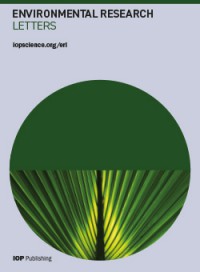Perspectives on Tipping Points in Integrated Models of the Natural and Human Earth System: Cascading Effects and Telecoupling

The Earth system and the human system are intrinsically linked. Anthropogenic greenhouse gas emissions have led to the climate crisis, which is causing unprecedented extreme events and could trigger Earth system tipping elements. Physical and social forces can lead to tipping points and cascading effects via feedbacks and telecoupling, but the current generation of climate-economy models do not generally take account of these interactions and feedbacks. Here, we show the importance of the interplay between human societies and Earth systems in creating tipping points and cascading effects and the way they in turn affect sustainability and security. The lack of modeling of these links can lead to an underestimation of climate and societal risks as well as how societal tipping points can be harnessed to moderate physical impacts. This calls for the systematic development of models for a better integration and understanding of Earth and human systems at different spatial and temporal scales, specifically those that enable decision-making to reduce the likelihood of crossing local or global tipping points.







